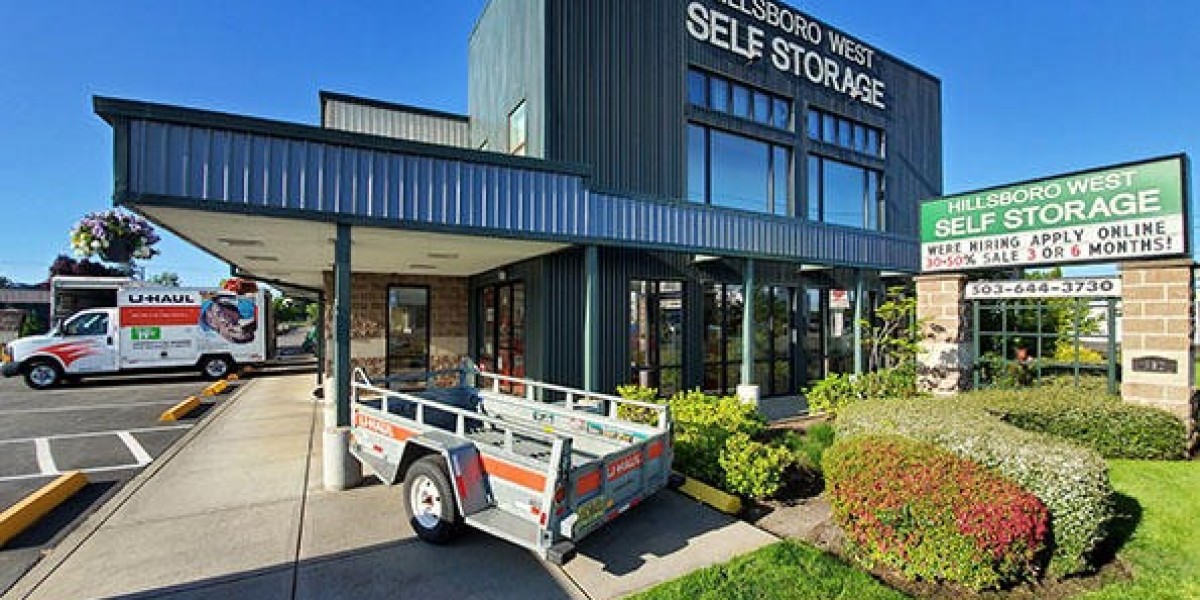When planning a new storage building in Hillsboro, one of the most important decisions you’ll make is choosing the right material. The material you select impacts not only the durability and appearance of the structure but also its ability to withstand the local climate, its long-term maintenance needs, and its overall cost. Whether you’re looking for a simple backyard shed, a farm outbuilding, or a commercial storage facility, the right material makes all the difference.
In this article, we’ll break down the most common materials for storage buildings in Hillsboro, their benefits, drawbacks, and tips for making the best choice for your needs.
1. Wood Storage Buildings
Wood has been one of the oldest and most popular materials for building storage structures.
Advantages of Wood:
Classic appearance – Wood storage buildings blend beautifully with homes and landscapes in Hillsboro.
Customizable – Easy to modify with shelves, windows, or decorative touches.
Insulation – Naturally provides better temperature regulation than metal.
Drawbacks of Wood:
Requires regular maintenance such as painting or staining to prevent rot.
Can be vulnerable to termites, mold, and moisture damage in Hillsboro’s rainy climate.
Typically more expensive than metal or vinyl.
Wood is a great option if aesthetics matter to you and you’re willing to maintain the structure over time.
2. Metal Storage Buildings
Metal buildings, often made of steel or aluminum, are increasingly popular in Hillsboro.
Advantages of Metal:
Durability – Resistant to pests, fire, and rot.
Low maintenance – Unlike wood, metal doesn’t require frequent painting or sealing.
Weather resistance – Well-suited to handle Hillsboro’s rainy and windy seasons.
Cost-effective – Generally more affordable than wood, especially for larger structures.
Drawbacks of Metal:
Can get very hot or cold without proper insulation.
Susceptible to dents or rust if not galvanized or treated.
Limited customization compared to wood.
For homeowners and businesses looking for a long-lasting, low-maintenance solution, metal storage buildings are an excellent choice.
3. Vinyl (PVC) Storage Buildings
Vinyl is another common material for storage sheds and small buildings.
Advantages of Vinyl:
Low maintenance – No painting or staining needed.
Weather-resistant – Doesn’t rot, warp, or rust.
Easy to clean – Just wash down with a hose occasionally.
Affordable – A budget-friendly option for small storage sheds.
Drawbacks of Vinyl:
Less durable than wood or metal.
Can crack or warp in extreme temperatures.
Limited structural strength – best for smaller storage buildings.
Vinyl is perfect if you’re looking for a cost-effective, easy-care solution for a small shed.
4. Concrete Block Storage Buildings
For larger, more permanent storage solutions, concrete block construction is a strong option.
Advantages of Concrete Block:
Extremely durable – Can last decades with minimal upkeep.
Weather-resistant – Handles rain and wind better than most other materials.
Secure – Provides better protection against theft or damage.
Fire-resistant – A safer choice for storing valuable items.
Drawbacks of Concrete Block:
Expensive to build compared to other options.
Requires professional installation.
Not as visually appealing without finishing work (paint, siding, or stucco).
Concrete block storage buildings are ideal for commercial use or for homeowners who need a long-term, secure structure.
5. Hybrid or Combination Materials
In Hillsboro, many storage buildings use a combination of materials. For example:
Wood framing with metal siding.
Metal framing with vinyl panels.
Concrete foundation with wood or steel walls.
These hybrids can give you the best of both worlds—a balance of affordability, durability, and appearance.
6. Climate Considerations in Hillsboro
When selecting materials, it’s important to consider Hillsboro’s climate:
Rainfall: Hillsboro sees frequent rain, so moisture-resistant materials like metal, vinyl, or treated wood are essential.
Temperature swings: Insulation may be necessary if you plan to store sensitive items.
Wind: A sturdy material such as steel or concrete helps ensure long-term durability.
7. Choosing the Right Material for Your Needs
Ask yourself these questions before deciding:
What will I store? Valuable items may need secure, weatherproof materials like concrete or steel.
What’s my budget? Vinyl and metal are more affordable than wood or concrete.
How much maintenance am I willing to do? If you prefer low maintenance, avoid untreated wood.
Do I care about appearance? Wood often looks the most natural but requires the most upkeep.
Conclusion
When it comes to storage building materials in Hillsboro, there’s no one-size-fits-all answer. Wood offers beauty and customization, metal delivers durability and low maintenance, vinyl provides affordability, and concrete ensures long-term strength and security. Hybrid options can also give you a practical balance.
By considering your budget, the purpose of your building, and the unique climate conditions of Hillsboro, you can select the best material to ensure your storage building lasts for years to come.






